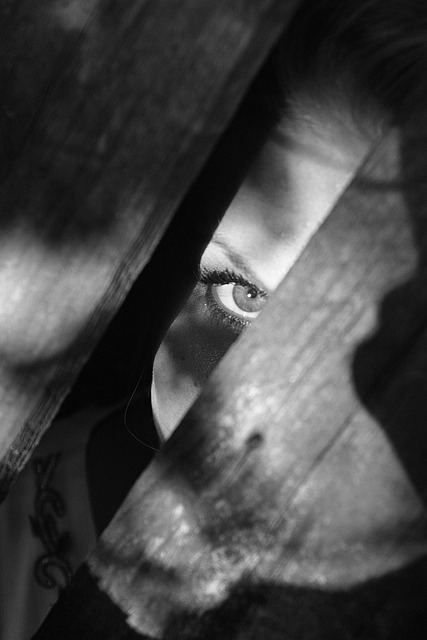The concept of the evil eye in Christianity refers to the belief in a malevolent gaze or glance that is believed to bring harm, misfortune, or bad luck to the recipient. It is often associated with envy, jealousy, or ill-wishing towards others. This belief has its roots in various cultures and religions, including Christianity, where it is seen as a form of spiritual or supernatural harm.
Table of Contents
Origins and History of the Evil Eye in Christianity
The evil eye is a concept that has been present in various cultures and religions throughout history. In Christianity, the evil eye is believed to be a malevolent gaze that can cause harm or misfortune to those who are targeted. The origins of the evil eye in Christianity can be traced back to ancient times, where it was seen as a form of witchcraft or sorcery.
The belief in the evil eye can be found in both the Old and New Testaments of the Bible. In the Old Testament, there are references to the evil eye in several passages. For example, in Proverbs 23:6, it is written, “Do not eat the bread of a man who is stingy; do not desire his delicacies, for he is like one who is inwardly calculating. ‘Eat and drink!’ he says to you, but his heart is not with you. You will vomit up the morsels that you have eaten, and waste your pleasant words on him.” This passage suggests that the evil eye is associated with envy and greed.
In the New Testament, Jesus also mentions the evil eye in his teachings. In Matthew 6:22-23, he says, “The eye is the lamp of the body. So, if your eye is healthy, your whole body will be full of light, but if your eye is bad, your whole body will be full of darkness. If then the light in you is darkness, how great is the darkness!” Here, Jesus is warning his followers about the dangers of having an evil eye, which can lead to spiritual darkness.
The belief in the evil eye in Christianity has its roots in ancient pagan beliefs and superstitions. In many cultures, the evil eye was seen as a powerful force that could bring harm or misfortune to others. It was believed that certain individuals had the ability to cast the evil eye through their gaze, and that this gaze could cause illness, bad luck, or even death.
Over time, the belief in the evil eye became intertwined with Christian beliefs and practices. In some Christian communities, there are rituals and prayers that are performed to protect oneself from the evil eye. These rituals often involve the use of holy water, crosses, or other religious symbols.
Today, the belief in the evil eye is still present in some Christian communities, although it is not as widespread as it once was. Many Christians view the evil eye as a superstition or a cultural belief that is not rooted in biblical teachings. However, there are still those who believe in the power of the evil eye and take precautions to protect themselves from its effects.
In conclusion, the evil eye in Christianity has its origins in ancient pagan beliefs and superstitions. It is believed to be a malevolent gaze that can cause harm or misfortune to those who are targeted. While the belief in the evil eye is not as widespread as it once was, it is still present in some Christian communities. Whether one believes in the power of the evil eye or not, it is an interesting aspect of Christian history and culture that continues to intrigue and fascinate.
Symbolism and Interpretations of the Evil Eye in Christian Beliefs

The evil eye is a concept that has been present in various cultures and religions throughout history. In Christianity, the evil eye is often associated with a symbol of protection against negative energy and evil forces. It is believed to have the power to ward off evil and bring good luck to those who possess it.
The evil eye is commonly depicted as an eye-shaped amulet or talisman, often made of glass or stone. It is believed to have originated in ancient Greece and Rome, where it was used as a protective charm against the evil eye. Over time, the belief in the evil eye spread to other cultures, including Christianity.
In Christian beliefs, the evil eye is often interpreted as a symbol of God’s watchful and protective gaze. It is seen as a reminder that God is always watching over his followers and protecting them from harm. The evil eye is believed to have the power to deflect negative energy and protect against the influence of evil forces.
The evil eye is also associated with the concept of envy and jealousy. In Christianity, envy is considered a sin and is believed to be one of the seven deadly sins. The evil eye is seen as a symbol of protection against envy and jealousy, as it is believed to deflect the negative energy that can arise from these emotions.
The evil eye is often worn as a piece of jewelry or displayed in homes and places of worship. It is believed to bring good luck and ward off evil spirits. Many Christians believe that by wearing or displaying the evil eye, they are inviting God’s protection and blessings into their lives.
The evil eye is also associated with the concept of faith. It is believed that by wearing or displaying the evil eye, Christians are expressing their faith in God’s protection and their trust in his power to ward off evil. It serves as a reminder to stay faithful and trust in God’s plan, even in the face of adversity.
In addition to its protective symbolism, the evil eye is also seen as a decorative element in Christian art and architecture. It is often incorporated into religious icons, paintings, and stained glass windows. Its presence serves as a visual representation of God’s watchful gaze and his constant protection.
In conclusion, the evil eye holds a significant place in Christian beliefs and symbolism. It is seen as a symbol of God’s watchful and protective gaze, as well as a reminder to stay faithful and trust in his power. The evil eye is believed to have the power to ward off evil and bring good luck to those who possess it. Whether worn as a piece of jewelry or displayed in homes and places of worship, the evil eye serves as a tangible reminder of God’s presence and protection in the lives of Christians.
Protection and Warding off the Evil Eye in Christian Practices
The evil eye is a concept that has been present in various cultures and religions throughout history. While it is often associated with superstition and folklore, it also holds significance in Christianity. In this article, we will explore the concept of the evil eye in Christianity and how believers protect themselves from its negative effects.
In Christian practices, the evil eye is believed to be a malevolent gaze or glance that can cause harm or misfortune to the person being looked upon. It is seen as a form of spiritual attack, where the intentions of the person casting the evil eye are believed to be filled with envy, jealousy, or ill will. This concept is rooted in the belief that the eyes are the windows to the soul, and a negative gaze can have detrimental effects on one’s well-being.
To protect themselves from the evil eye, Christians have developed various practices and rituals. One common method is the use of amulets or talismans. These objects, often in the form of a cross or an eye symbol, are believed to ward off the evil eye and protect the wearer from its negative influence. They serve as a physical reminder of God’s protection and act as a shield against any harmful intentions.
Another way Christians protect themselves from the evil eye is through prayer. Prayer is seen as a powerful tool to seek God’s protection and guidance. By praying for protection from the evil eye, believers place their trust in God’s ability to shield them from harm. They believe that through prayer, they can invite God’s presence into their lives and create a spiritual barrier against any negative influences.
In addition to amulets and prayer, Christians also rely on the power of blessings. Blessings are often performed by priests or religious leaders and are believed to have a protective effect against the evil eye. By invoking God’s blessings, believers seek divine intervention and ask for His favor and protection. This act of blessing is seen as a way to consecrate oneself and create a spiritual shield against any harm that may come from the evil eye.
Furthermore, Christians also emphasize the importance of living a virtuous life as a means of protection against the evil eye. By cultivating positive qualities such as humility, kindness, and gratitude, believers aim to create an aura of positivity around them. This positive energy is believed to repel any negative intentions and make one less susceptible to the harmful effects of the evil eye.
In conclusion, the evil eye holds significance in Christianity as a malevolent gaze that can cause harm or misfortune. To protect themselves from its negative effects, Christians employ various practices and rituals. These include the use of amulets, prayer, blessings, and living a virtuous life. By seeking God’s protection and cultivating positive qualities, believers aim to ward off the evil eye and invite divine favor into their lives.
Modern Perspectives and Relevance of the Evil Eye in Christianity
The evil eye is a concept that has been present in various cultures and religions throughout history. While it is often associated with superstition and folklore, it also holds significance in Christianity. In this article, we will explore the modern perspectives and relevance of the evil eye in Christianity.
To understand the concept of the evil eye in Christianity, it is important to first delve into its origins. The evil eye is believed to be a curse or malevolent gaze that can cause harm or misfortune to those who are targeted. This belief can be traced back to ancient civilizations, where people believed that certain individuals possessed the power to cast this curse simply by looking at someone with envy or ill intent.
In Christianity, the evil eye is often associated with envy and jealousy. It is believed that when someone looks upon another person with envy, they are inadvertently casting a curse upon them. This curse can manifest in various ways, such as illness, bad luck, or even death. While the evil eye is not explicitly mentioned in the Bible, there are several passages that allude to its existence.
One such passage is found in the book of Proverbs, which states, “A heart at peace gives life to the body, but envy rots the bones” (Proverbs 14:30). This verse suggests that envy can have detrimental effects on both the physical and spiritual well-being of an individual. It implies that the evil eye, in the form of envy, can bring about negative consequences.
In modern Christianity, the concept of the evil eye is still relevant, albeit in a more symbolic sense. Many Christians believe that envy and jealousy are sins that can lead to spiritual and emotional harm. They view the evil eye as a metaphor for the destructive power of these negative emotions.
Furthermore, some Christians believe that the evil eye can be countered through prayer and faith. By seeking God’s protection and guidance, they believe that they can ward off the effects of the evil eye. This belief is rooted in the idea that God’s love and grace are more powerful than any curse or negative energy.
In addition to prayer, some Christians also use protective symbols or amulets to guard against the evil eye. These symbols, such as the cross or the eye of God, are believed to have the power to repel negative energy and protect the wearer from harm. While these practices may vary among different Christian denominations, they all share the common goal of seeking protection from the evil eye.
In conclusion, the evil eye holds a significant place in Christianity, albeit in a more symbolic sense. It represents the destructive power of envy and jealousy, and the potential harm they can cause. While the evil eye is not explicitly mentioned in the Bible, its relevance is still acknowledged by many Christians today. Through prayer, faith, and the use of protective symbols, believers seek to guard themselves against the negative effects of the evil eye. Ultimately, the concept of the evil eye serves as a reminder to Christians to cultivate love, compassion, and contentment in their hearts, rather than succumbing to envy and jealousy.
Conclusion
The evil eye in Christianity is a belief or concept that refers to the idea of a malevolent gaze or look that can cause harm or misfortune to others. It is often associated with envy, jealousy, or ill intentions towards someone. This belief is not explicitly mentioned in Christian scriptures but has been influenced by cultural and folkloric traditions. The concept of the evil eye varies across different Christian denominations and regions, with some considering it as superstition while others acknowledging its existence. Overall, the evil eye in Christianity is seen as a negative spiritual force that can bring about harm or negative consequences to individuals.
For licensing reasons, we must provide the following notice: This content was created in part with the help of an AI.


